Nick Simper | Deep Purple | Warhorse | Interview
Nick Simper is an English bass guitarist, who was a co-founding member of Deep Purple and Warhorse.
In the 1960s, he began his professional career in bands such as Johnny Kidd & the Pirates, The Flower Pot Men, and Lord Sutch’s Savages.
We are living in very turbulent times. Pandemic, wars … how do you see the world these days in comparison to when you started your career in the 1960s?
Nick Simper: As a youngster in the sixties I only saw the optimism heralded by the advent of rock n roll. Now I am old enough to see that times have always been turbulent but recent events have woken people up to the manipulation and phoney illusion of freedom that has always been with us. It took many years before I began to see the world as it truly is! My main hope is that the perpetrators of the past two years’ misery are brought to justice.
What’s the current status of Nasty Habits? Are you planning to play together again in the foreseeable future?
The current status of Nasty Habits was put on hold at the start of the scamdemic. Now that governments are making a u-turn on their insane rules we have to hope that things will eventually return to normal and we can carry on gigging and recording as we did before.
How did you originally start working together?
I met the original Nasty Habits when they supported my own band “The Good Old Boys” during two concerts in Austria. Their enthusiasm for Deep Purple was quite obvious, and I was similarly impressed with their talent. Drummer Peter Brkusic invited me to do a one off show of MK1 Deep Purple songs with them in Vienna, which I agreed to. The reaction to this show was phenomenal and led to many invitations to play in other countries which was great fun and led to us becoming a permanent touring unit. The success of the band has been a great experience, especially at my time of life, and so I am extremely grateful to them and proud of what we have achieved.
Your career is really profound and it would be simply impossible to touch on everything, but let’s start at the beginning. How do you recall the very early years when you were playing in bands like The Renegades (1960–61), The Delta Five (1961–63), Some Other Guys (1963–64), Buddy Britten & The Regents (renamed Simon Raven Cult (1964–66))?
The early days were incredibly happy and exciting and I think I was extremely lucky to have so much fun at such a young age. I was still at school when I became lead guitarist of The Renegades. When I joined The Delta Five I was able to learn the business from slightly older and more experienced people which was a great learning curve! After a two year period with them I was beginning to find a musical direction and ambition which led me to leave and try to form what I hoped would be a better outfit. This did not prove to be easy as it was difficult to find a good bass player, whilst guitarists were in abundance, and most of them better than I was! This realisation led me to take on the role of bassist, which I found extremely satisfying. I considered Some Other Guys to be a great group, good enough to be professional, who were able to achieve great audience reaction and with a good future ahead. Sadly the band folded when I left to take my first professional gig with Buddy Britten and the Regents. This was a great offer that I could not refuse, as Buddy Britten was one of my all time musical heroes.
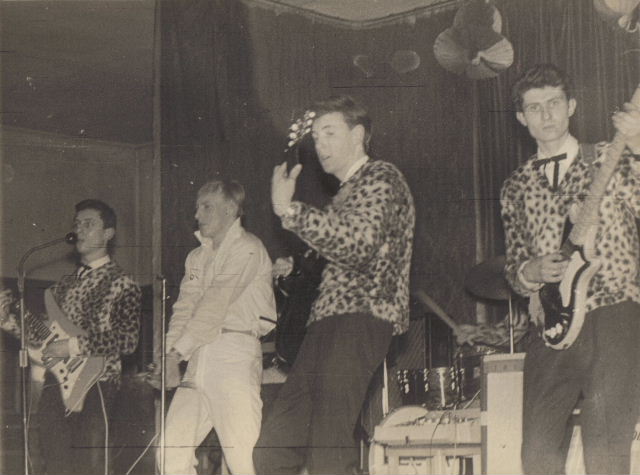
It is very difficult to convey the very different music scene of the 1960’s to today, which I think most people would not easily understand. The chart stars of that period were at the very top, whilst groups like The Delta Five were regularly gigging away at the bottom. In the middle however, were a hard core of bands who were the ones to really excite audiences and inspire young musicians. These were the acts who had real class and the best musicians, who filled venues consistently with or without hit records. Bands such as Nero and the Gladiators, Neil Christian and the Crusaders, Screaming Lord Sutch and the Savages, Buddy Britten and the Regents, Cliff Bennett and the Rebel Rousers, and, the best of all, Johnny Kidd and the Pirates. These bands provided many of the great players who launched the huge explosion of successful bands in the following decade. Although I always felt sad and slightly guilty at causing the demise of The Delta 5 and Some Other Guys.
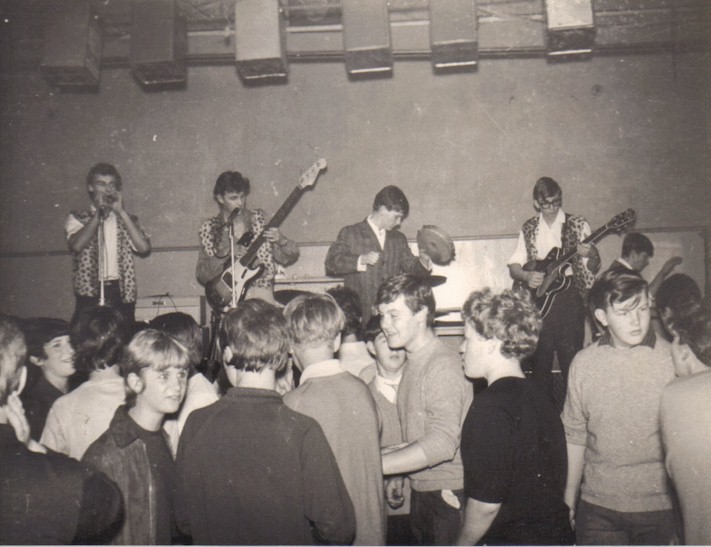
I could not turn down the offer to turn professional. I can only compare it with young unknown musicians of the seventies and eighties being offered the chance to join, say, Led Zeppelin, AC/DC, or even Deep Purple! Of course the financial rewards were not on the same scale, but most of these bands made a very good living, merely by being the best at what they did.
Tell us how Johnny Kidd & the Pirates come about?
Johnny Kidd was my musical idol, who inspired everyone from The Beatles to Tom Jones. When I learned of his split with the Pirates, I seized a golden opportunity to offer the services of the Regents as his new band, and luckily he jumped at the chance to join us. Johnny was a great person to be with, truly liked by just about every person in the business, good fun and extremely generous, he became a great friend. The accident that happened less than a year later was a real tragedy, but the Pirates vowed to carry on without Johnny. Sadly, although well received by audiences, we felt that it was not working without the great voice and charisma of Johnny, so we decided to disband. I personally decided that I would not carry on playing though, until persuaded by the great drummer, Carlo Little, who talked me into joining Billie Davis’ band, The Quality. I will always be grateful to Carlo!
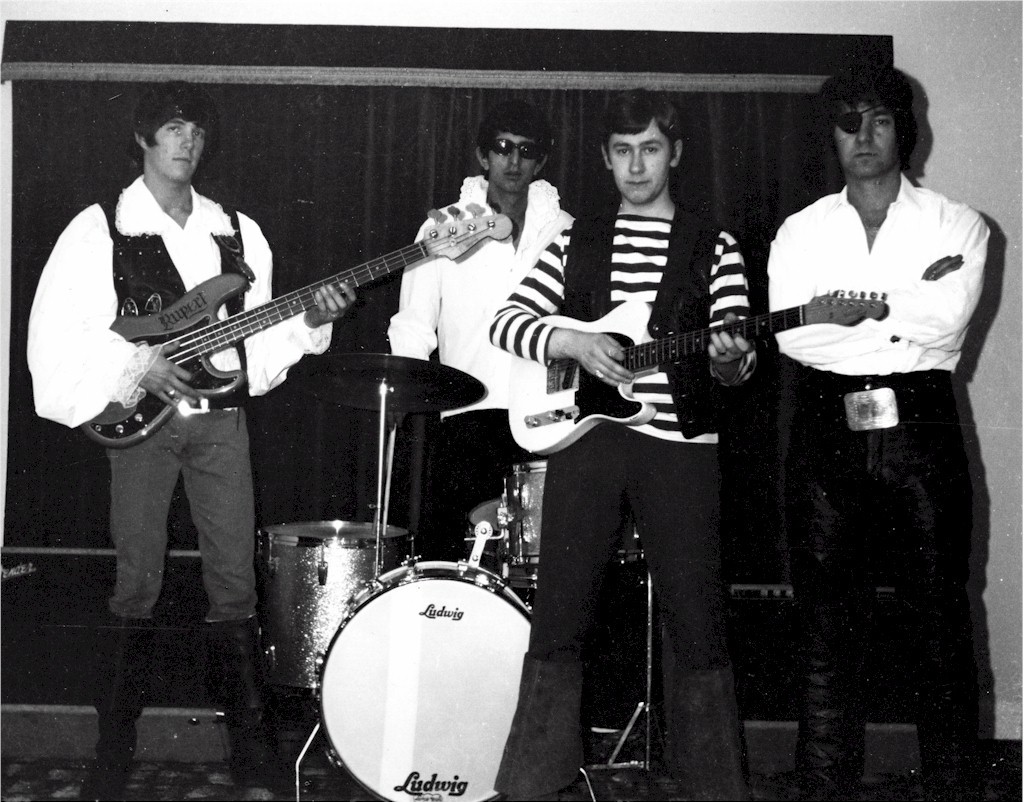
Where did you meet members of the band Garden?
The Garden was the name given to the musicians who worked with The Flowerpot Men, who quickly changed it to The Sundial. The group had been backing singer Billie Davis when ‘Let’s Go To San Francisco’ hit the top ten. This record was made by session men and so a touring group was put together to capitalise on the hit record. Shortly afterwards Billie’s group were recruited and we launched into a non-stop tour of Britain. It wasn’t long before the keyboard player had to leave with health problems and was replaced with Jon Lord. After several months Jon was approached by Chris Curtis of The Searchers to form a new group. When this failed to materialise the three businessmen who were financing the operation asked Jon if he was still interested, and so he recruited me. Ritchie Blackmore and drummer Bobby Woodman were already lined up, and so the four of us began to look for a singer. After picking Rod Evans we felt that Bobby Woodman was not right for us, and so we drafted in Ian Paice who had worked in Rod’s previous group.
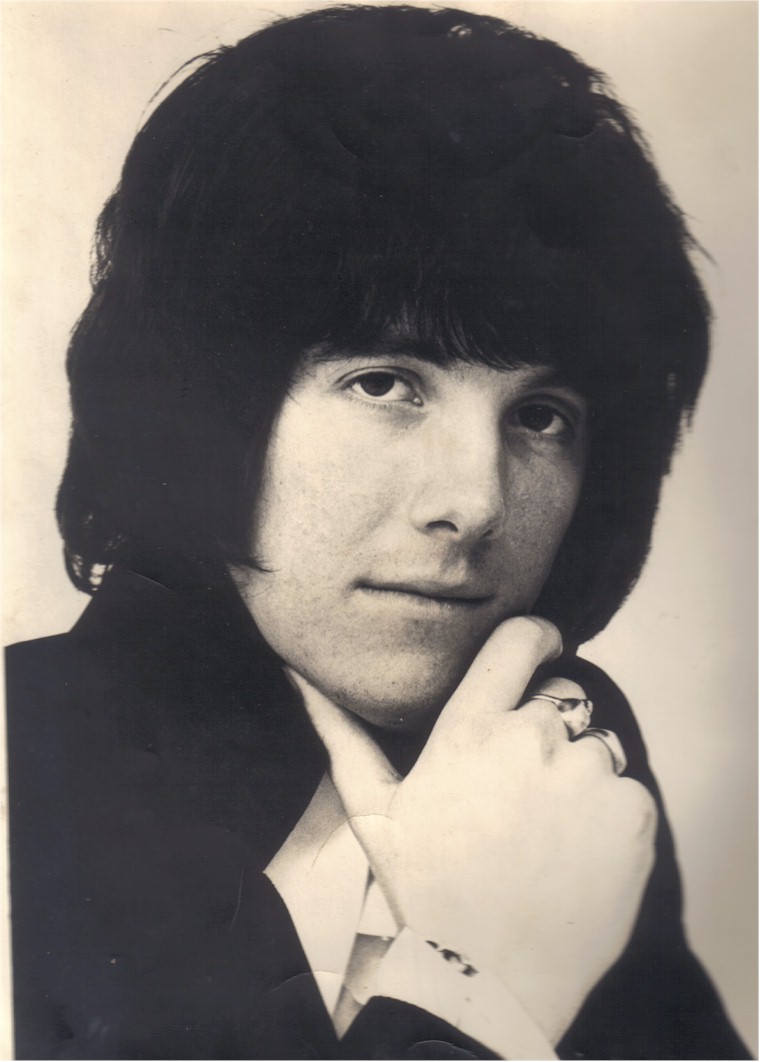
This eventually led to the formation of Deep Purple, as Jon Lord played in The Flower Pot Men (1967–68) and the Garden were a backing band. Can you elaborate on the formation of Deep Purple?
Yes, the original line up only lasted for sixteen months, but we undertook a ferocious time-table of touring and recording, and to produce three albums in that time was truly incredible. The creativity was sparked by the interaction between five musicians who really worked well together. We were at our most creative when we sat down and wrote as a group. Sadly this did not last as certain members attempted to write on their own simply for financial reasons. Although the intense demands placed on us for material meant that we had to sacrifice originality for covering other people’s songs, purely to meet deadlines!

The ‘Shades Of Deep Purple’ album has to be my favourite because it was almost live and incredibly spontaneous, although the third album had a few nice tracks in the heavier style that Ritchie and I were attempting to push the group into.
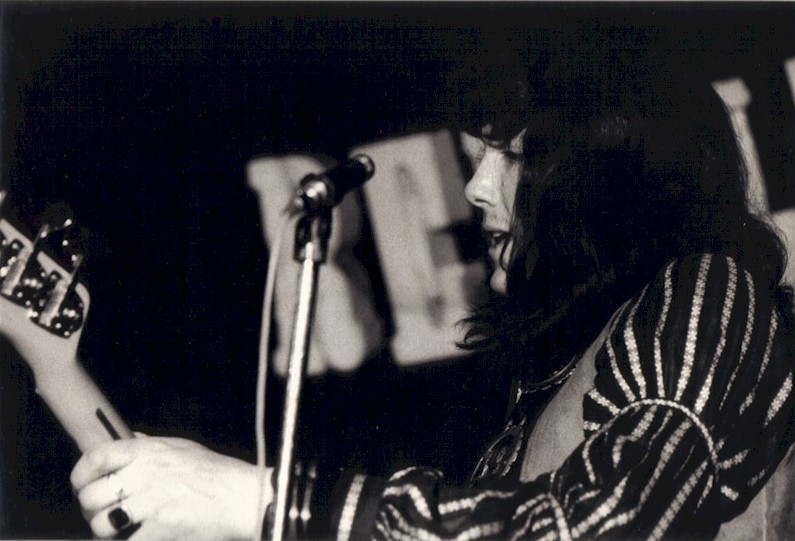
Together with Rod Evans you left the band in mid 1969. Both of you recorded absolutely fantastic releases. You with Warhorse and Evans with Captain Beyond. But let’s first talk about your involvement with Marsha Hunt and Lord Sutch.
Marsha Hunt approached me days after I left Deep Purple and offered me a gig which eventually led to me becoming her band-leader. Lord Sutch had been a good friend for several years and remained so until his death. For many years he had been one of the biggest and best attractions in the country and I had worked as a member of The Savages on and off for many years. Sutch was known for discovering some of the best musicians around, many of whom went on to bigger things. He was a lovely man and would often call up Carlo Little and myself if we had a gig that he felt was important, and it was always a pleasure to do it. Shortly after joining Marsha I was advised by John Entwistle of The Who to form a new band and “knock everyone out” as he put it. This led to several great players being drafted into Marsha’s band with an eye to the future and when she announced her retirement the band joined up with singer Ashley Holt to begin Warhorse.
How did you get signed to Vertigo?
We were lucky to be approached by several record companies who wanted to sign us, and Vertigo was chosen simply because they were a brand new label and ambitious. We kicked several names around and settled on the name “Iron Horse”, when we discovered the name was in use, I suggested “Warhorse”. We recorded the first album at Trident Studios in London, using our usual stage equipment and trying to get as live a feel as possible. The band produced the album, along with publisher Ian Kimmet who was a close associate of ours. Like ‘Shades Of Deep Purple’ the album was recorded very fast, maybe three to four days, due to a small budget. The resulting tracks were co written by the whole band hoping to create an extremely heavy sound. The single ‘St Louis’ had always been a favourite of mine from the “Vanda and Young” songbook and I think the result was pretty good.
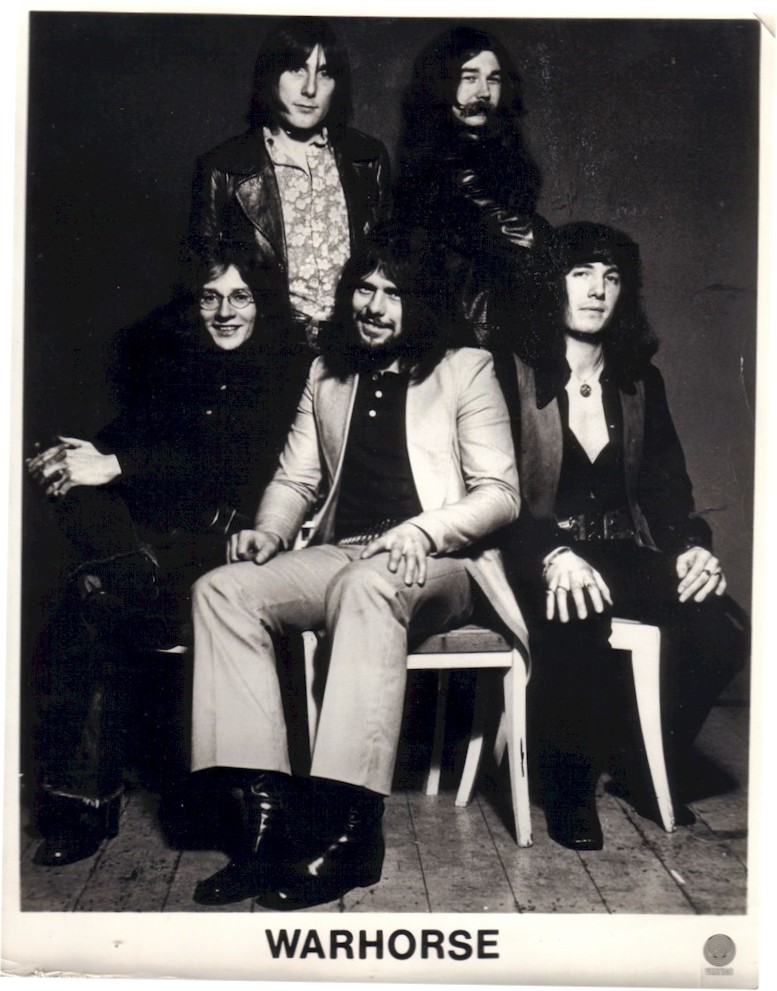
What can you say about the cover artwork?
The artwork was basically my idea, hoping to recreate the look of a WWI battlefield. This was achieved with the help of stuffed horses and smoke bombs. Following the release quite a few other bands adopted war themes to sell their records.
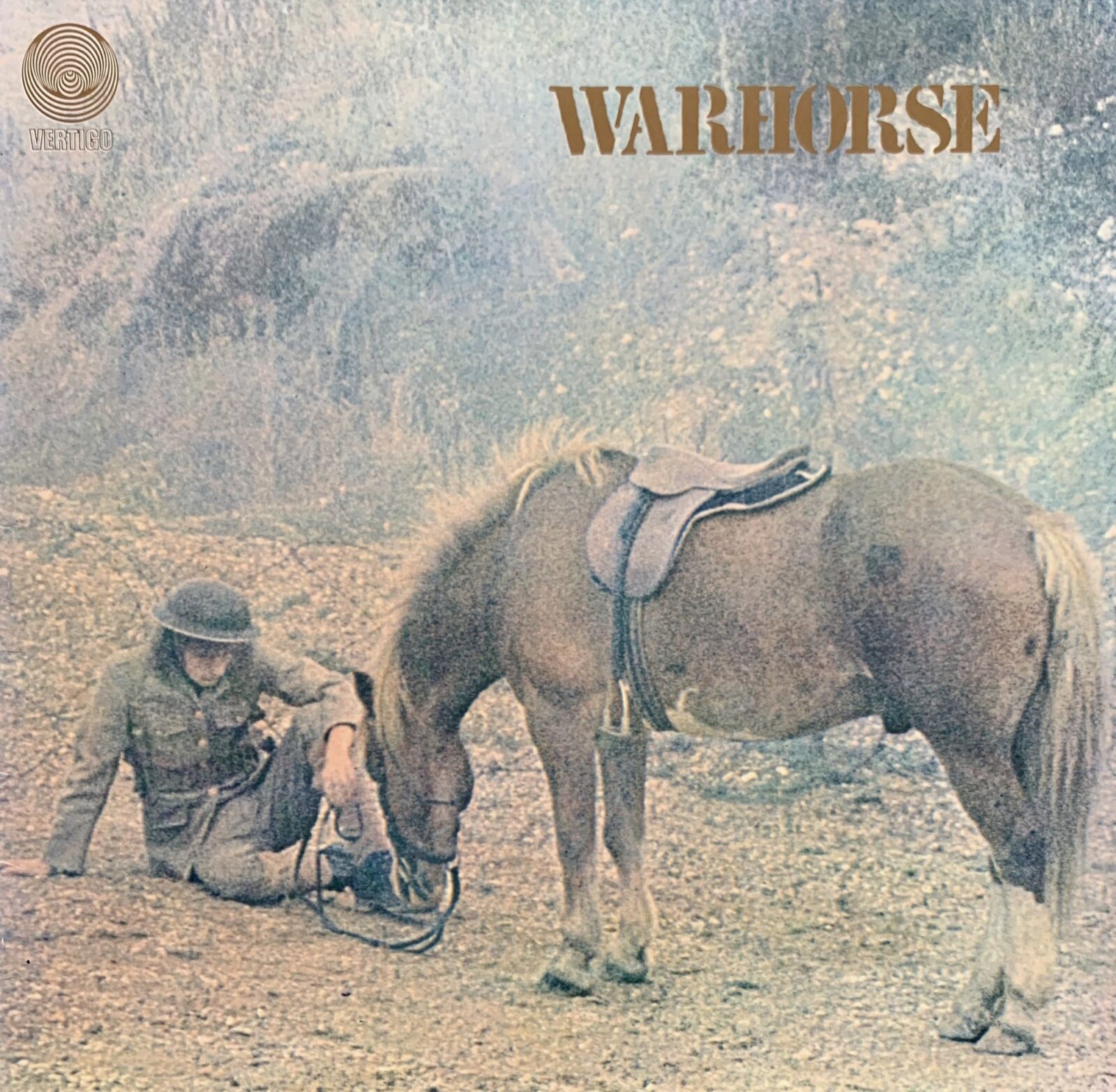
What are some of the strongest memories from working on the ‘Red Sea’ album?
‘Red Sea’ was my first introduction to working in the studio with Pete Parks, whose ideas and sounds transformed the band. He brought fresh influences and inspiration to the group. We tried to be as original as possible with our writing, but Pete’s blues background comes through strongly in his playing. The song ‘Red Sea’ began by kicking around the same bass line that I came up with for ‘Hush’. ‘Sybilla’ was our favourite track based on a simple double-string base line, but I can hear traces of Jimi Hendrix and Randy California in the album.
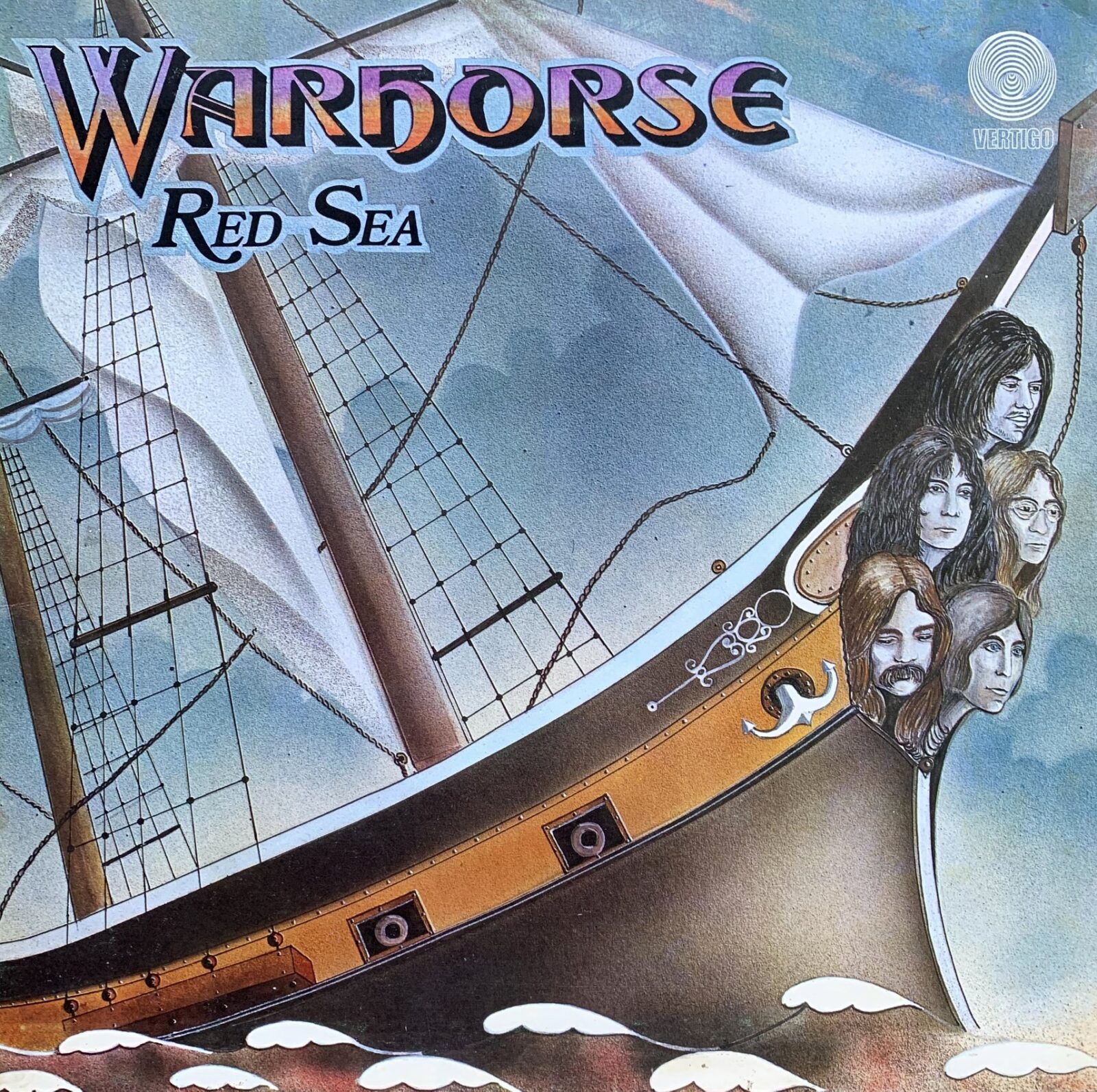
Did the band tour to support the LP?
Warhorse toured consistently in Britain and Europe.
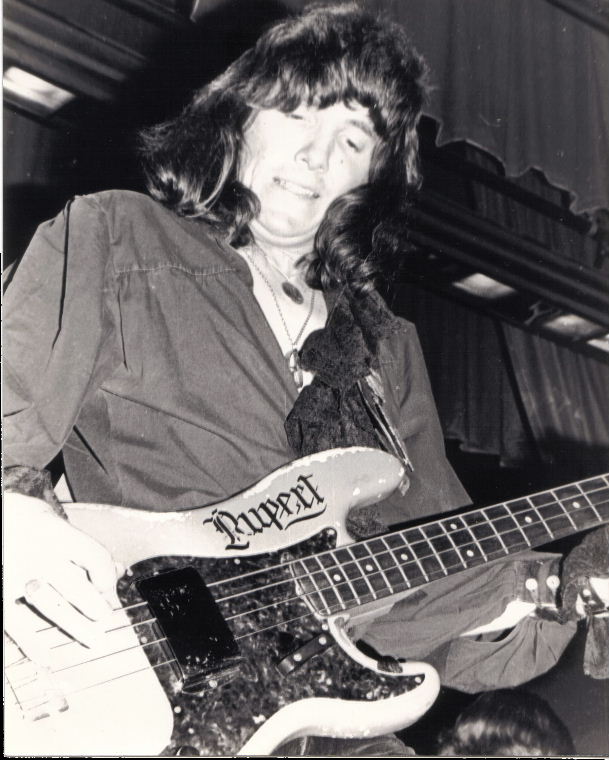
“Police with machine guns were sent in to stop the show!”
What would be the craziest gig?
We had many crazy gigs but the one I remember most was at a theatre in Holland when the crowd began to riot, and police with machine guns were sent in to stop the show!
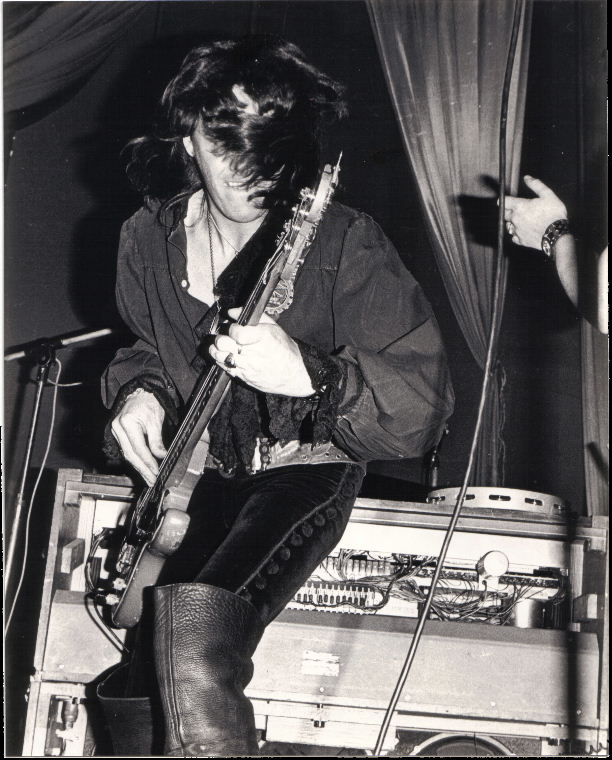
What led to the end of the band?
Sadly the band ended after four years of constant touring when drummer Barney James and singer Ashley Holt left to join Rick Wakeman’s band. Ironically Rick was our first keyboard player before Frank Wilson.
Tell us about Nick Simper’s Dynamite and its 1975 single.
Dynamite was a great opportunity to work with some fantastic players. It was started immediately after Warhorse by myself and Pete Parks. We chose James Royal on vocals, probably one of the country’s best! The management insisted on a remake of ‘St Louis’ which turned out very well, but sadly the record company collapsed and so the single saw only limited release in Italy.
Is there any other unreleased material by Dynamite or Warhorse?
I have unreleased material by both bands, but do not consider the quality to be good enough for release. I also have a live show from the Warhorse reunion some twenty years ago which may possibly be considered for release.
Tell us about your friendship with Barney James. He replaced Mac Poole on drums. Did he appear on the second album or?
Barney James replaced Mac Poole, but was not on ‘Red Sea’. We made several demo recordings with Barney which can be heard on the newer Warhorse CD releases.
He was interested in going solo and together with Frank Wilson, Pete Parkes and you he finished the recording. Tell us about this long lost acetate.
After Barney left Rick Wakeman he was offered a solo recording deal. He recruited myself, Pete and Frank to record with him so it was great to have most of the old Warhorse team together once more. We were also helped by ace U.S. session guitarist Mark Warner. Barney elected to sing only and the drums were played by Ron Penney. Unfortunately Barney’s concept album was only half completed, due to a record deal not forthcoming. Several acetates were cut and taken around different record companies without success and so eventually the whole project was consigned to history. Barney James died several years ago and his family were able to get the project packaged and released in his memory which is a great tribute to him. He was a lovely man and a fabulous drummer.
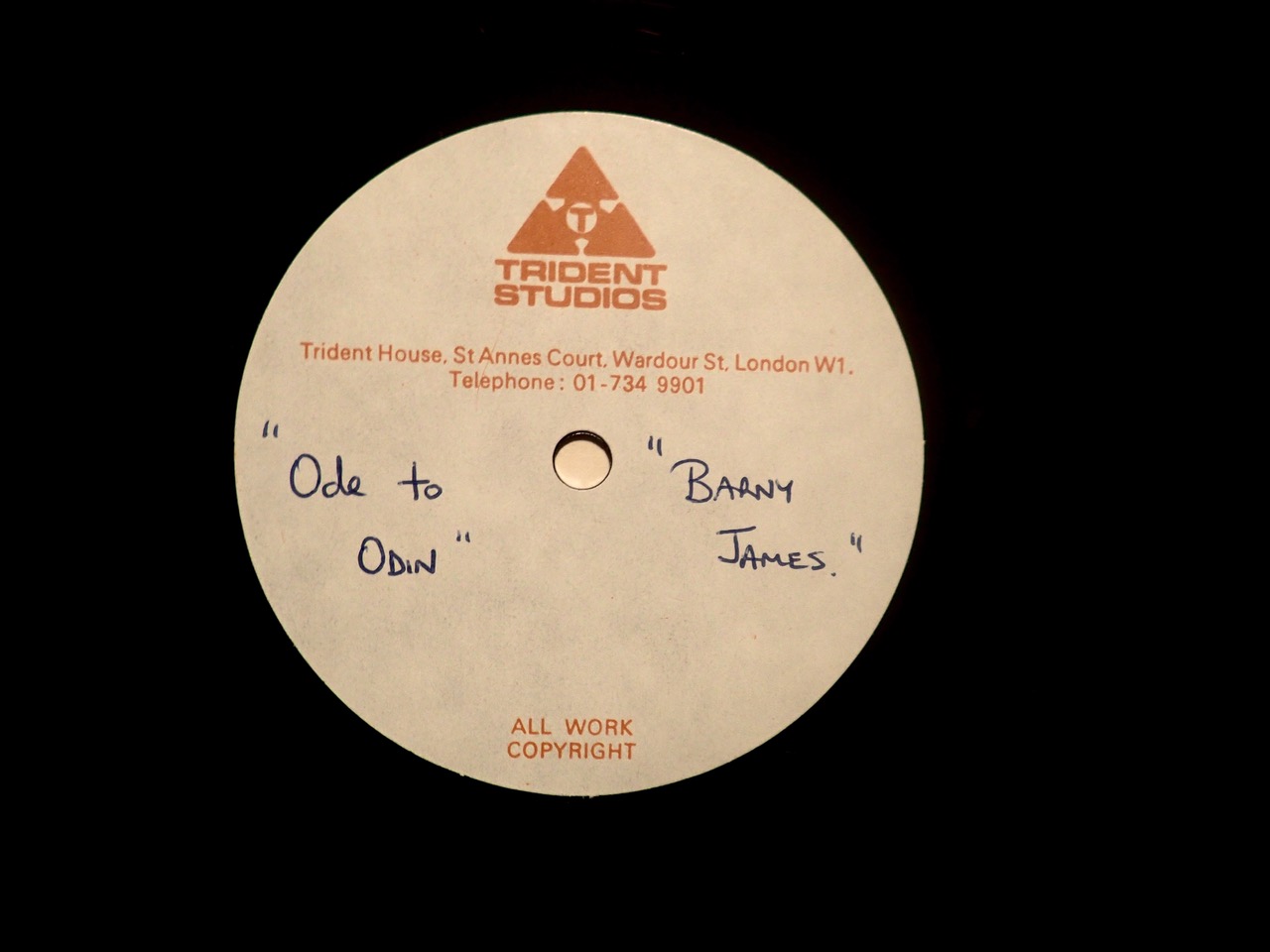
And this eventually led to Fandango. How do you recall the years with Nick Simper’s Fandango?
Pete Parks and I were so impressed by Ron Penney that we teamed up with him and Jim Proops to form Fandango. We all thought the band had a lot of promise and we were pleased with the way our albums turned out, but once again we saw the record company collapse, and the cost of touring was prohibitive and so the band came to an end, but it was a very happy time for everyone involved.
It’s almost impossible to name all of your collaborations, but please share some words about Flying Fox, Quatermass II, The Good Old Boys and Blaggards & Cowboys.
Flying Fox’ was started in 1979 while ‘Fandango’ was still recording. This was a chance to play with friends strictly for fun and without the headaches of managers, record companies, agents et cetera. Led by a great singer called Frankie Reid it featured Pete Parks, myself and the great Carlo Little. Often we would be augmented by Sid Phillips and Tony Hall on saxophones (from Cliff Bennett’s Rebel Rousers). Frank Reid emigrated to Australia in the same year so James Royal took over. He then also left for Australia and so Alan Barratt joined. The band eventually became The Good Old Boys, being joined by guitarist Simon Bishop and on drums Richard Hudson from The Strawbs. Blaggards and Cowboys was purely a recording situation masterminded by great drummer John Kerrison. Quatermass II was a collaboration with Mick Underwood. I was always a fan of his playing and it was a joy to make our one and only album, and to tour. As with Fandango, the cost of touring without financial support was immense and finally led to us disbanding.
Give us some insights on developing your bass technique.
My bass technique took many many years to perfect. I started with no knowledge at all, being a lead guitarist at first. Where I was very lucky was to always play with great drummers which helped me to understand the power of a good rhythm section. My biggest asset was working with Carlo Little for so many years. He got me to listen to wind instruments, particularly saxophone players and it was there that I found most of my favourite riffs. During the Deep Purple and Warhorse years I was particularly inspired by Tim Bogert of Vanilla Fudge, but I play far less frantically now and do just what is necessary to drive the band. I was extremely lucky to be mentored in my early years by two of the greatest bass players ever, Tony “Rupert” Ross, and Cliff Barton who got me off to a great start. Sadly both these players died during the 1960’s while extremely young, but their talent was very well recognised in the business, and had they lived they would be very well known today.
What other musical activities have you undertaken lately?
The last recordings I made were with my son Richard and his musical partner Donagh Maloney, professionally known as Aeon Sophia, the albums being ’21 hundred and Headphonauts’. They are planning their third album soon. Hopefully if things ever get back to normal I would like to perform with Nasty Habits again.
Looking back, what was the highlight of your time playing music? Which songs are you most proud of? Where and when was your most memorable gig?
Looking back over the years there have been so many highlights that it would be impossible to list them, so I guess I have been extremely lucky! It is difficult also to pick favourite songs as the catalogue is rather long, but if pushed then I would pick ‘Hush’. I had a big input into how that song sounded and I am proud of the fact that it still sounds fresh. That was the sound of the original Deep Purple and it kickstarted a whole industry, which still survives today! As for a memorable gig, I am also lucky to have lots of them, but I guess the best for me was the first show in London in 1966 as a member of Johnny Kidd and the Pirates. Johnny was my all time musical hero and I still find it hard to believe that I was in his band!
Thank you. Last word is yours.
Many thanks for your interest Klemen. Remembering the rebellious nature of my generation of musicians during past decades I am disappointed at the deafening silence from the majority of the music business. With a few exceptions such as Eric Clapton and Van Morrison they appear to have turned a blind eye to one of the biggest crimes against humanity in history. However, truth will find its way out. As I have said before I have been extremely lucky in life and have no regrets. Let us hope that the business will recover and one day get back to normality.
Klemen Breznikar
Nick Simper Official Website

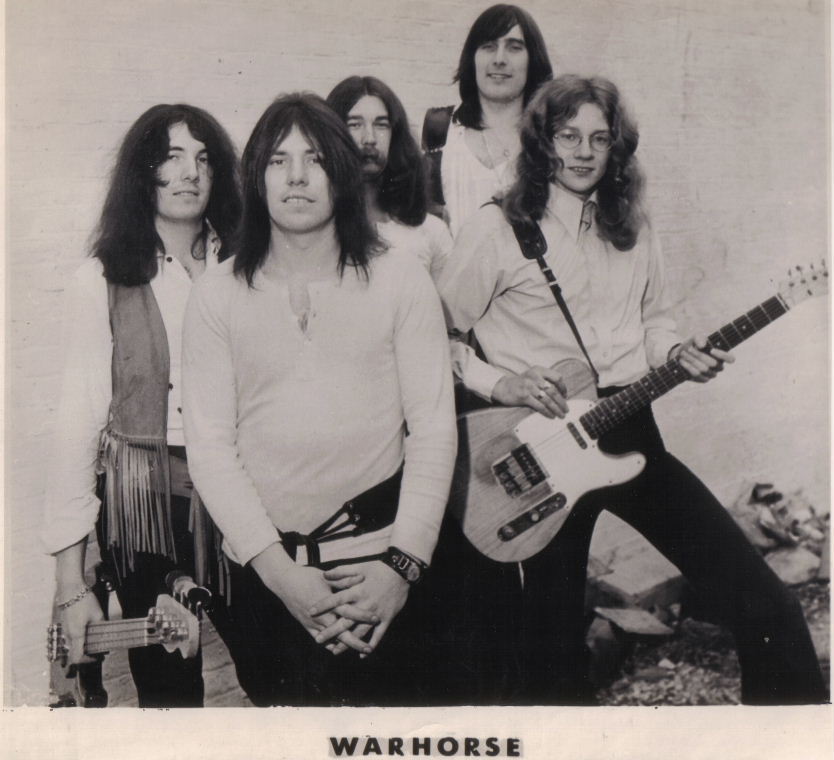
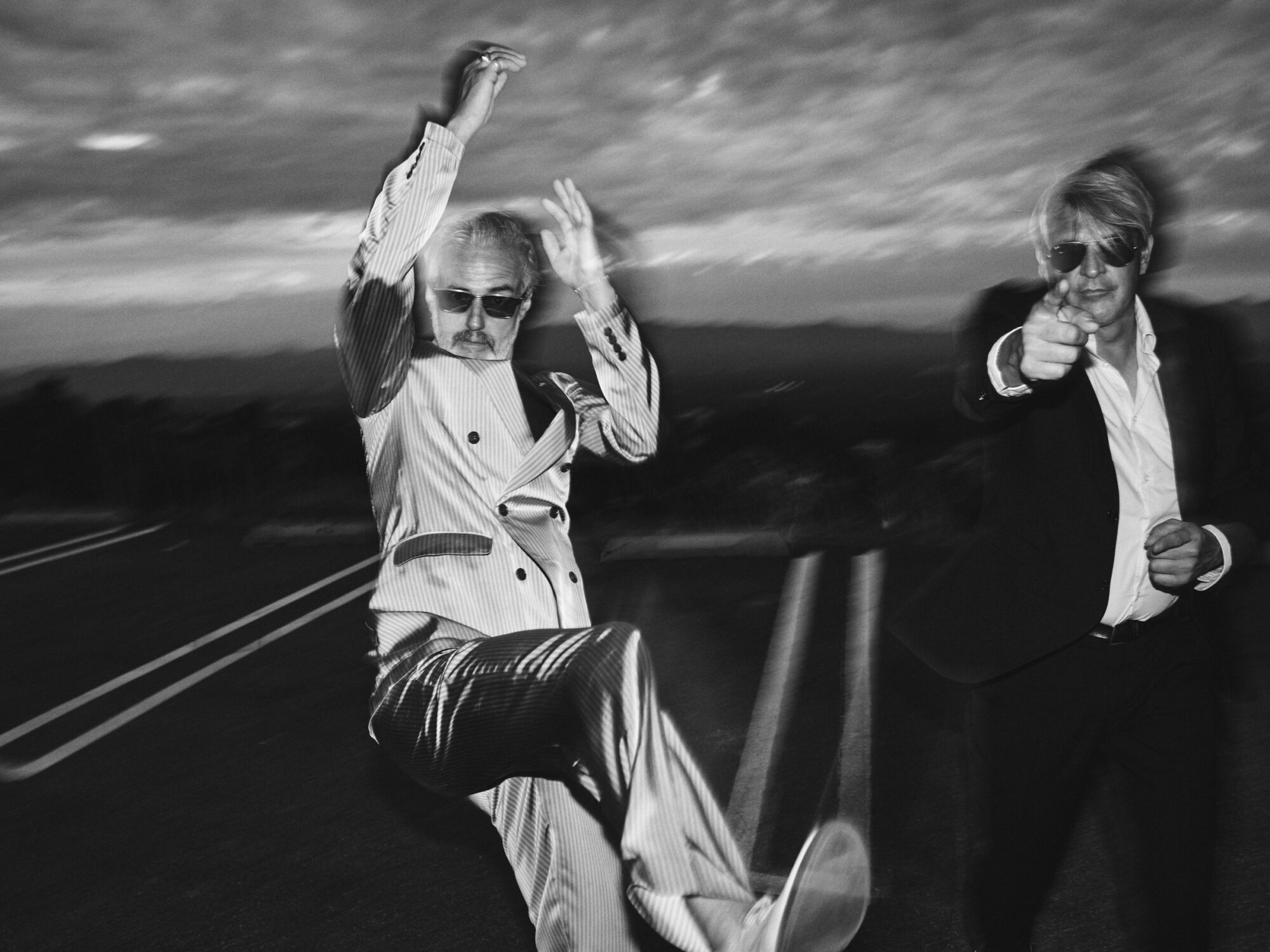
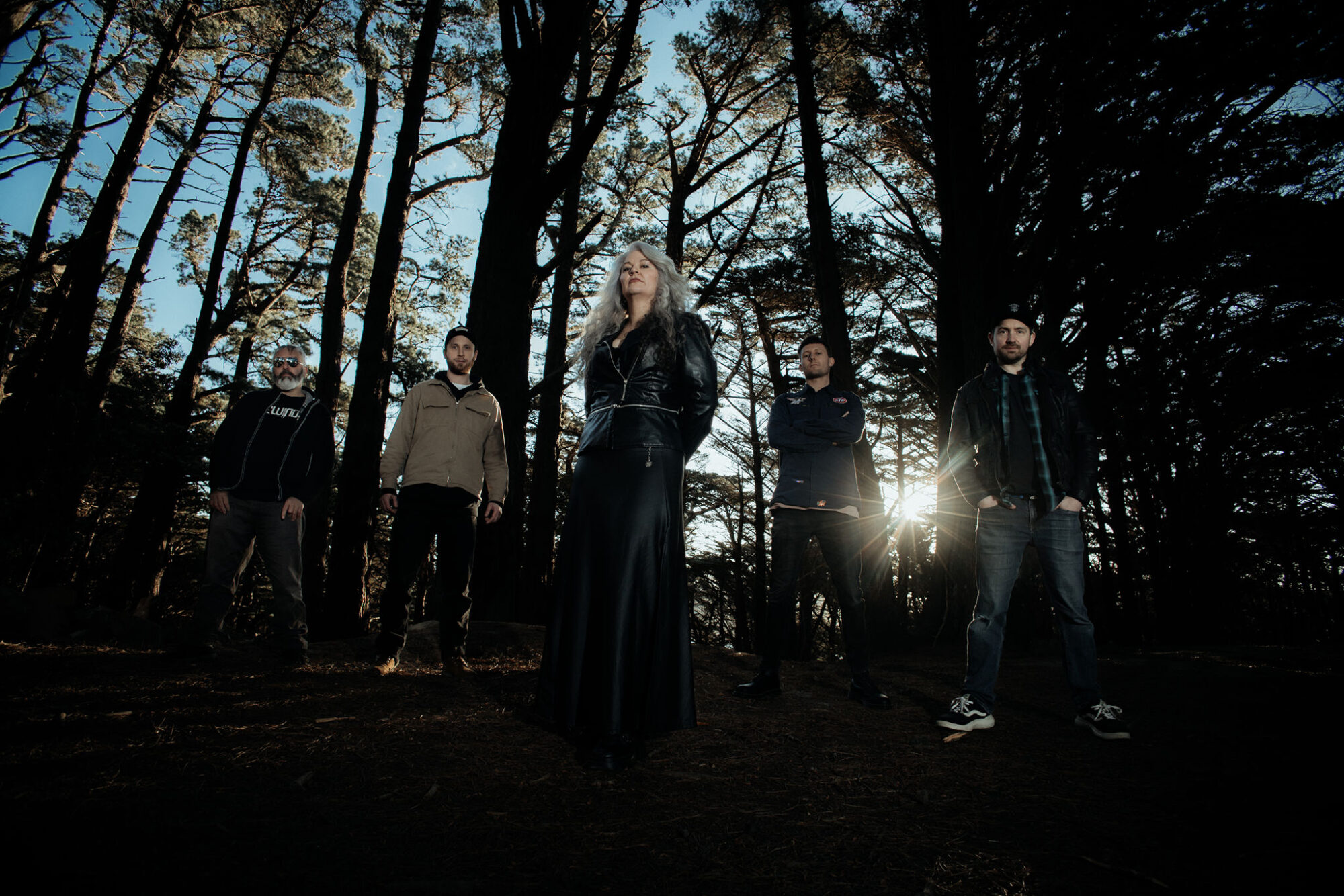
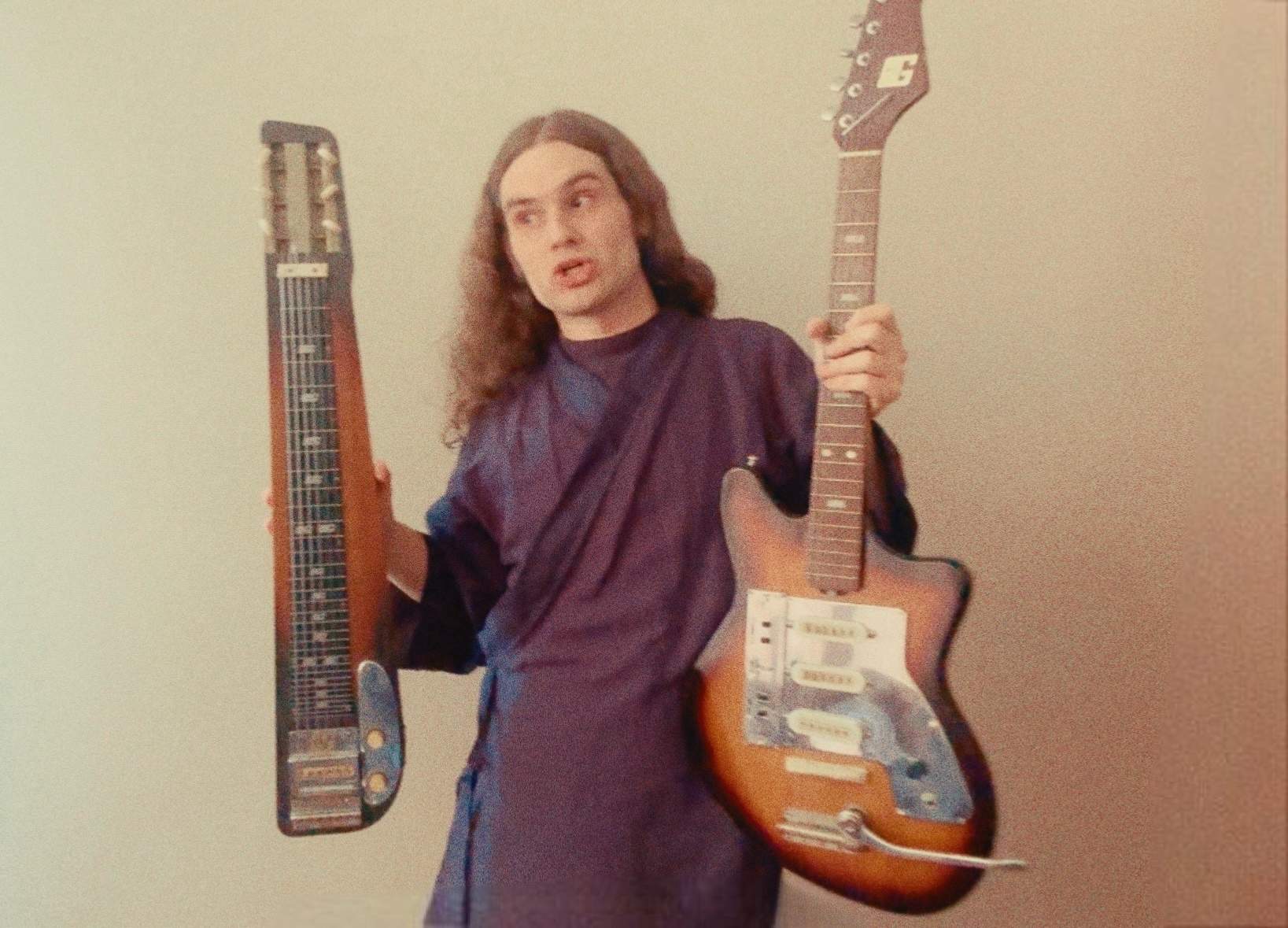
Thank you very much for this – especially for ‘allowing’ a different opinion than that the mainstream seems to have …
“Now I am old enough to see that times have always been turbulent but recent events have woken people up to the manipulation and phoney illusion of freedom that has always been with us. ”
Print this in capitals –